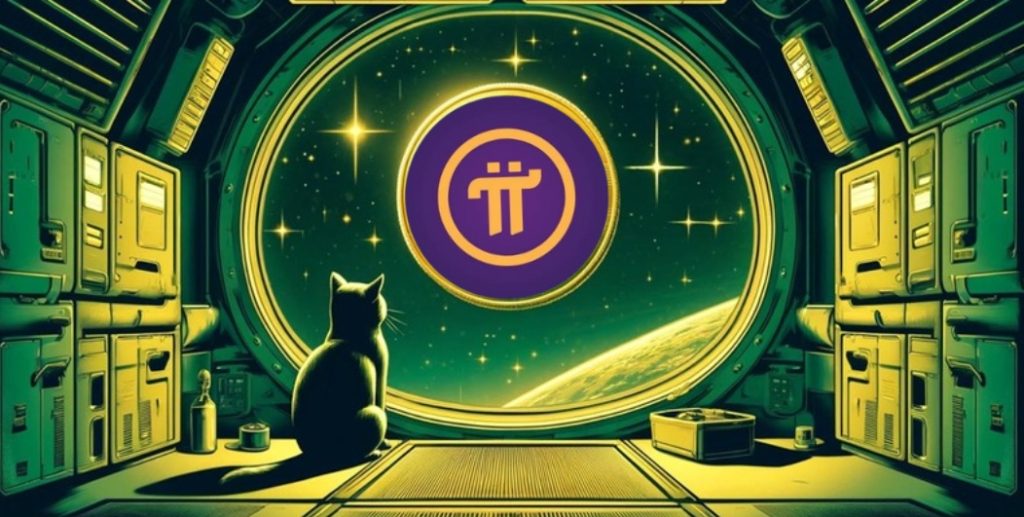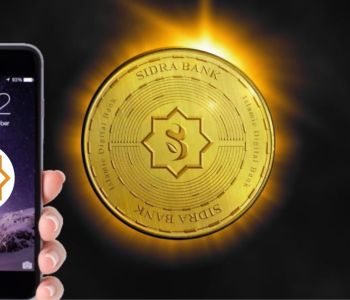You have likely heard of the new cryptocurrency Pi Network. Its popularity has skyrocketed, with many hoping to cash in on the next big digital coin. However, greed has led to concerning developments. Users are attempting to sell and trade the unregulated IOUs of Pi Network, often falling victim to scams in the process especially in Vietnam. As the network remains in closed mainnet, only internal wallet transfers are permitted. Yet users persist, risking money and privacy to buy Pi from strangers online. Without regulation or oversight, it’s a formula for disaster. Continue reading to learn how Pi Network’s unbridled growth has enabled predatory behavior and deception across its user base. Tread carefully in this digital Wild West, where your money and identity may be at risk.
Understanding Pi Network and Pi Coins
Pi Network is a project launched in 2019 aiming to distribute Pi coins to as many people as possible by allowing them to earn coins through a mobile app. Pi coins are not currently traded on any exchanges, as the project is still in development.
Participants download the Pi Network app and login daily to click a lightning bolt icon, which triggers algorithms to mine new Pi on their phone. The more users join the network, the more Pi is distributed. Once 3.14 million users have joined, the network will transition to a fully decentralized blockchain.
At the time of writing, Pi Network has over 55 million engaged pioneers who tap the lightning bolt daily. The ultimate goal is for Pi to become widely used as a medium of exchange, with the potential to impact global access to financial services.
Some concerns have been raised about the unregulated trading of Pi IOUs (promises to deliver Pi once it becomes exchangeable), with many reportedly falling victim to scams. There are also questions about whether the Pi Network will successfully develop into a viable cryptocurrency and blockchain.
While ambitious and innovative, the Pi Network project needs to provide more transparency to address concerns, protect users, and instill confidence that earned Pi may someday hold real value. The potential benefits to global financial inclusion are promising, but the road ahead remains long.
With over 55 million people eagerly awaiting the ability to exchange Pi, regulators must determine how to properly oversee this new type of incentive-based currency so that it does not enable unlawful behavior. There are also concerns about the environmental impact of cryptocurrency mining and how that might apply to Pi Network.
The Risks of Trading Unregulated Pi IOUs
Fraud
Buying and selling Pi IOUs exposes users to fraud since there are no regulations in place. Sellers can easily scam buyers by taking payment without delivering the promised Pi. Buyers have little recourse in such situations. Pi Network itself warns users against trading IOUs, stating that it “cannot guarantee the integrity of such peer-to-peer transactions.”
Price Manipulation
An unregulated market means that there are more opportunities for price manipulation. Bad actors can spread misinformation to artificially inflate Pi IOU prices before dumping their holdings for a profit. New buyers will be left holding worthless IOUs. Price manipulation creates an unstable market and hurts investor confidence.
Legal Issues
Selling securities without proper registration or licensing is illegal. Both buyers and sellers of Pi IOUs could face legal consequences for participating in unregulated trading. Although Pi Network terms its native tokens as “utility tokens,” some governments may still view them as securities. There is legal uncertainty around Pi IOUs which adds to the risks.
Despite the hype and excitement around the Pi Network project, trading unregulated IOUs is extremely risky with a high chance of losing money to fraud or scams. The legal status of Pi IOUs is also unclear, and both buyers and sellers could face legal trouble. For these reasons, Pi Network explicitly warns its users against trading IOUs and participating in unregulated secondary markets. The risks far outweigh any potential rewards. It is best for users to avoid trading Pi IOUs altogether until the network transitions to a regulated and legitimate exchange.
Beware of Pi Coin Scams and Fraudsters
Never Share Your Pi Wallet Passphrase
Your Pi wallet passphrase is the only way to access your Pi balance. Never share this sensitive information with anyone, especially unverified buyers or sellers. Legitimate trading platforms will never ask for your wallet passphrase.
Be Wary of “Too Good to Be True” Offers
If an offer to buy or sell Pi seems too good to be true, it likely is a scam. Fraudsters will often make extravagant promises to trick people into sending money or cryptocurrency upfront. Once sent, the scammer disappears.
Only Use Verified Trading Platforms
When Pi transitions to the open mainnet, only trade on verified cryptocurrency exchanges. These platforms take security seriously and work to prevent fraud. Unverified groups, message boards, and social media channels are rife with scams.
Never Send Money or Pi Before Receiving Goods
Never send money or Pi to a seller before receiving the goods or services promised. This is a common scam tactic, and once funds have been sent, the fraudster will disappear without upholding their end of the deal. Meet buyers and sellers in person when possible, and avoid those only willing to communicate online or over the phone.
When Pi officially launches, trading will be permitted on verified exchanges. Until then, be extremely wary of unsolicited offers to buy or sell Pi, especially those that require sharing sensitive information or sending funds upfront. Fraud is rampant in the cryptocurrency space, so remain vigilant and trust your instincts—if something feels off, it likely is. By exercising caution, you can avoid becoming the victim of a Pi Network scam. The open mainnet launch will be announced through official Pi Network channels when ready.
How to Safely Buy and Sell Pi Coins
Verify the Buyer’s Identity
When buying or selling Pi, it is critical to verify the identity of the other party to avoid fraud. Insist on meeting in person for any transactions and check government-issued ID to confirm the name and photo match. Be wary of those who propose deposit payments upfront or pressure you into sending Pi before receiving payment.
Use Escrow Services
For added protection, consider using an escrow service like Piscrow for Pi transactions. Piscrow services act as a neutral third party to ensure both the buyer and seller fulfill their obligations before releasing funds or Pi. Reputable crypto escrow services which include LocalBitcoins and Paxful are not yet transacting in Pi. Though, these services charge a small fee for facilitating and securing transactions.
Check Exchange Rates
Before finalizing a sale, check Pi’s current internal exchange rate for the IOU as well as rates on unofficial secondary markets to determine a fair price. As Pi is not yet tradable on major exchanges, its value can vary significantly between individual buyers and sellers. Make sure you are offering or paying a reasonable price based on the latest market data.
Conduct Test Transactions
When dealing with a new counterparty, it is prudent to start with a small test transaction. Send or receive a small amount of Pi to ensure the process goes smoothly before conducting a larger trade. Test transactions minimize the risks in case the other party fails to honor their end of the deal.
Keep Records
Maintain records of all Pi buy and sell transactions including screenshots, chat logs, and wallet addresses. These records can serve as evidence in case there are any issues with a transaction and may help recover stolen funds. Thorough records also provide an audit trail for tax reporting purposes.
By exercising caution and following these best practices, Pi Network users can securely buy and sell Pi even while it remains in the “closed mainnet” phase. As Pi transitions to public blockchains and exchanges, the risks of fraud and scams may decrease but users should remain vigilant. The general principles of verifying identity, using escrow services, checking exchange rates, starting with small test transactions, and keeping good records apply to all crypto transactions.
Conclusion
You, the reader, must exercise caution when participating in the unregulated trading of Pi’s IOUs. While the potential rewards may seem enticing, the risks are real. Scams abound, and you may fall victim to fraud. Protect yourself by dealing only with trusted parties, meeting in person for transactions, and avoiding demands for upfront payments or deposits. The Pi Network remains in its infancy, and its full potential is yet unknown. Patience may reward those who refrain from risky speculation. You have the power to make wise choices. Trade carefully, skeptically, and only with money you can afford to lose. The future of Pi relies on an ethical community. You can lead by example. Read Similar Story

















Satoshi – Global Free Airdrop
Satoshi is the world’s top one free airdrop platform,we will have various outstanding projects and tens of million crypto world residents.
https://www.btcs.love/invite/6yygn
I am sending you 1π! Pi is a new digital currency developed by Stanford PhDs, with over 47 million members worldwide. To claim your Pi, follow this link https://minepi.com/kanest and use my username (kanest) as your invitation code.
#Athene #Network #ATH #Pi #PiNetwok #OpenEx #OEX
Good news Athene Network launched offical P2P trading Wesbite
Now you buy Sell … Ath Gem Pi on this Trading Site
Register your account link 👇
https://play.google.com/store/apps/details?id=network.athene.app
Invite code. 61b3fbe999
already registered on Athene network
Update your Athene Network profile
👉use this code invite: 61b3fbe999
Mine Pi for free on your phone!
I am sending you 1π! To claim your Pi, follow link https://minepi.com/yajer72 use (yajer72), your invitation code.
I am sending you 1π! Pi is a new digital currency developed by Stanford PhDs, with over 55 million members worldwide. To claim your Pi, follow this link https://minepi.com/daiv101 and use my username (daiv101) as your invitation code.
I am sending you 1π! Pi is a new digital currency developed by Stanford PhDs, with over 55 million members worldwide. To claim your Pi, follow this link https://minepi.com/dreamtreats and use my username (dreamtreats) as your invitation code.
The Web3 business network for the AGI era.
In the dawn of the AGI (Artificial General Intelligence) era, the OpenEX Network is at the forefront of revolutionizing the Web3 landscape by building an open and efficient trading network. Our mission is to harness the power of blockchain technology to create a decentralized platform that not only meets the demands of today’s digital economy but also anticipates the future needs of an AGI-driven world.
https://oex.to/d/1YtksPn
At the heart of the OpenEX Network is the development of UniLayer2, a high-performance public blockchain designed to underpin our trading ecosystem. This foundation will support a suite of trading functionalities, token creation, fair launch practices, as well as smart contracts for staking, rewards, and voting. Each of these elements is crafted to ensure transparency, security, and user empowerment.
To provide a seamless and integrated experience, we are concurrently developing a corresponding DApp and mobile app. These interfaces will offer users easy access to our trading network, ensuring that whether you’re at your desk or on the move, the power of OpenEX is at your fingertips.
Furthermore, our trading protocol and DApp are engineered to operate flawlessly on both the Core Blockchain and the OEX Mainnet. This dual-layer integration guarantees not only high efficiency and scalability but also robustness and redundancy, safeguarding the network against potential vulnerabilities.
The OpenEX Network is more than just a trading platform; it’s a step into the future of decentralized finance, tailored for the imminent AGI era. We’re committed to building a world where transactions are not just transactions, but pathways to a fairer, more open financial world.
#OpenEx #Wallet #OEX #Satoshi